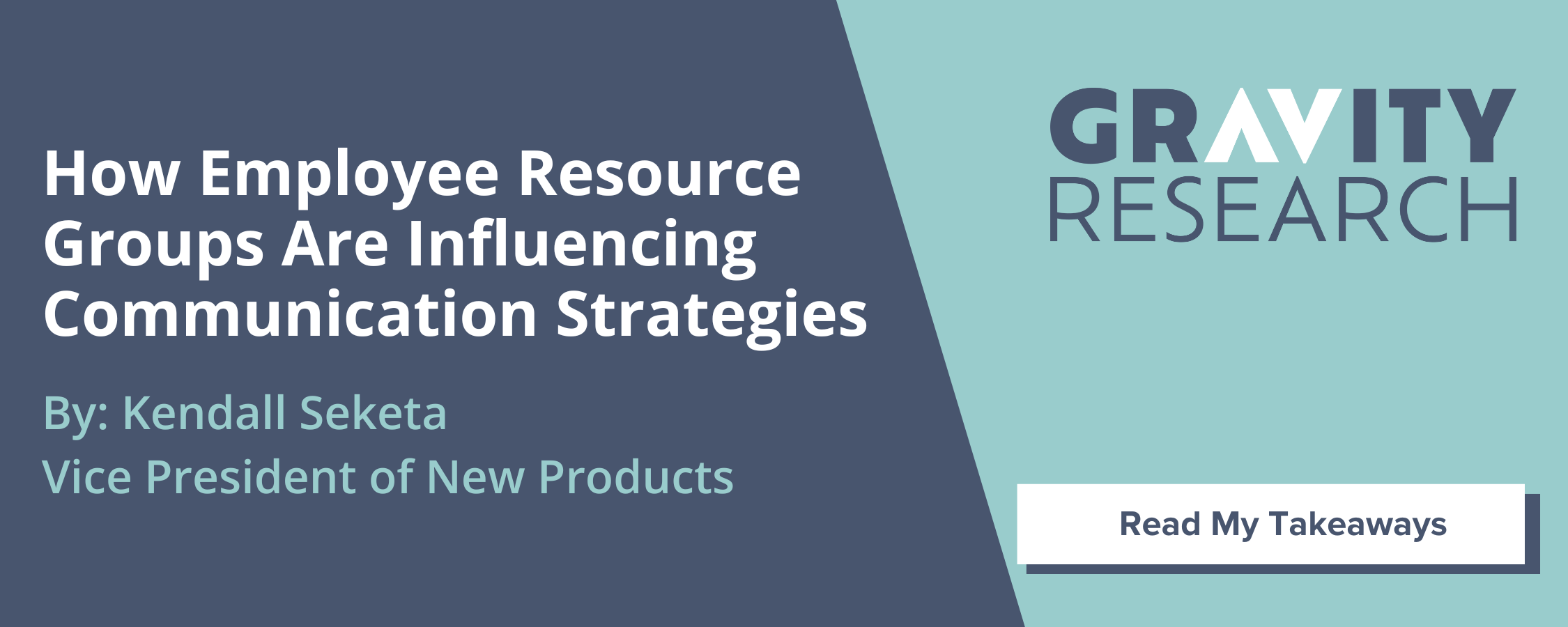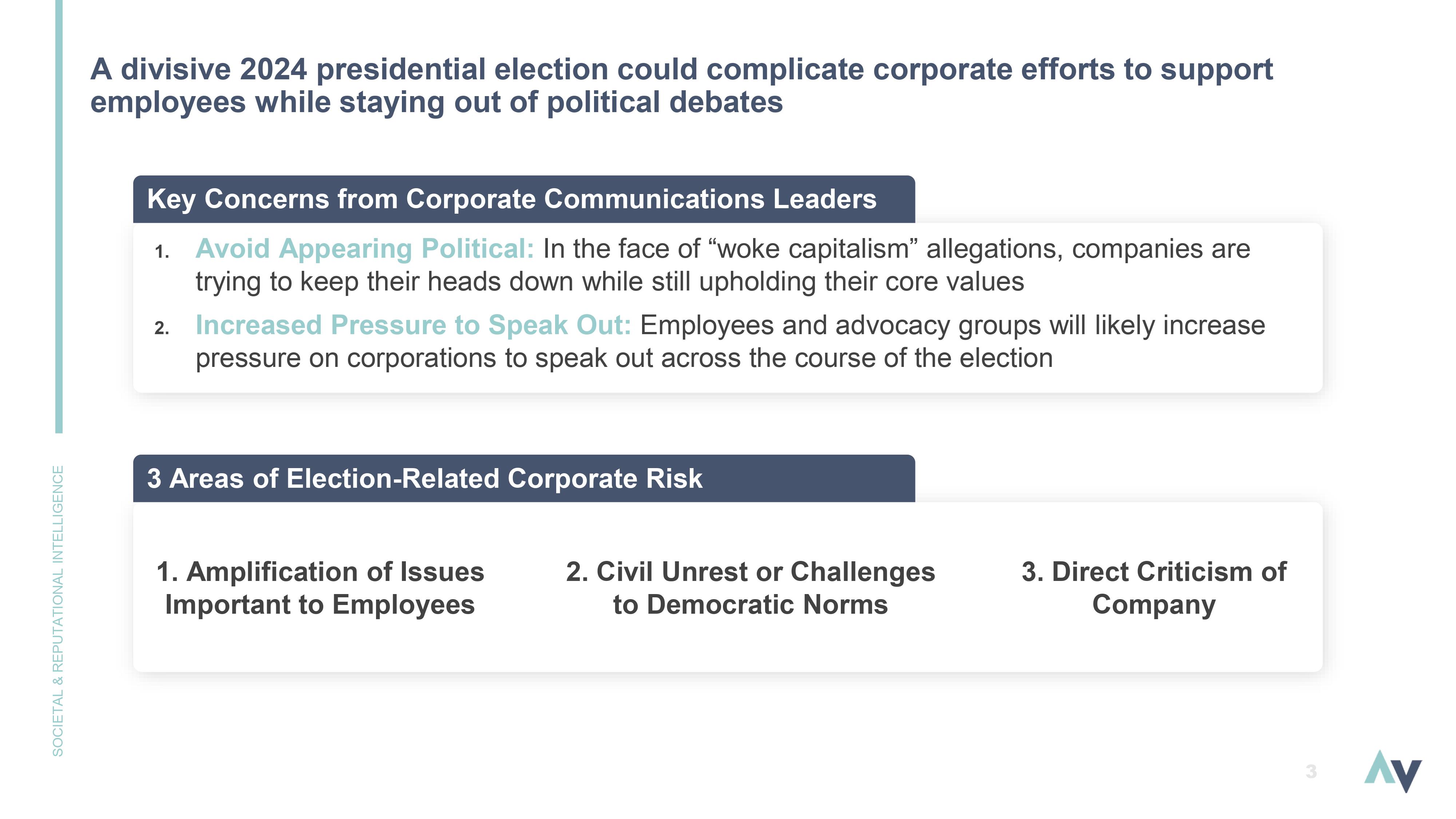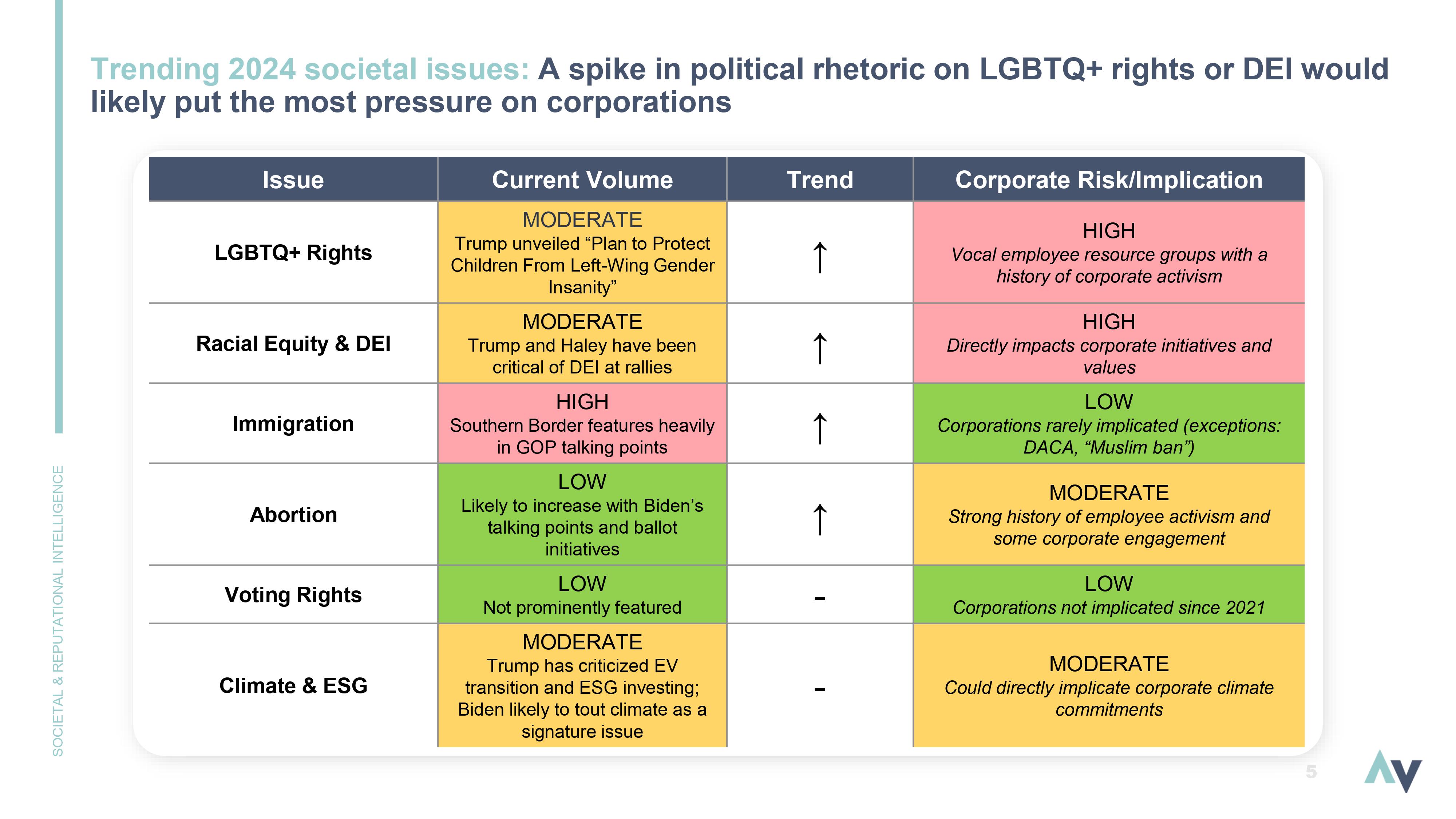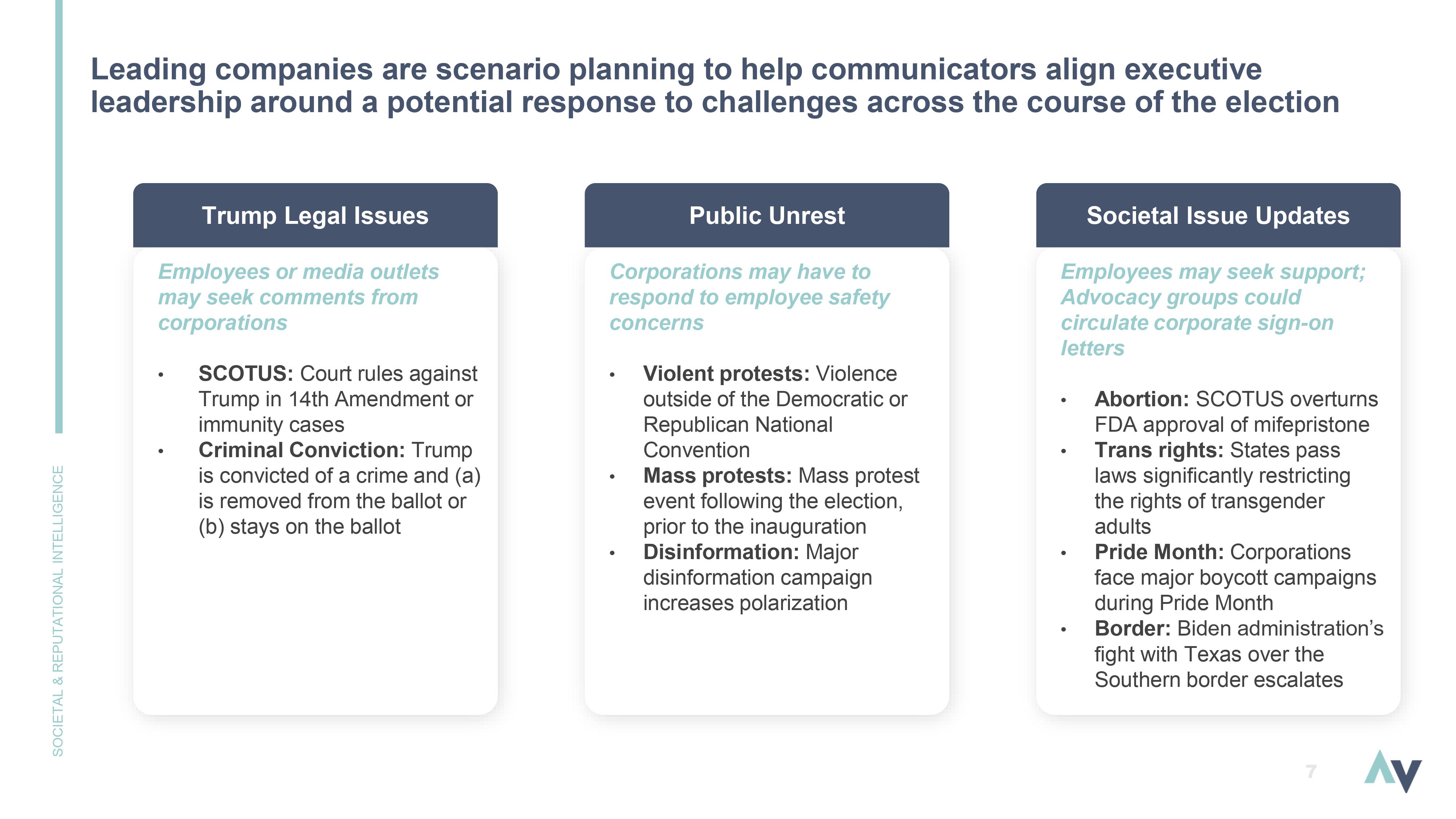Over the last few years, as leading companies refined their diversity, equity, and inclusion (DEI) strategies, many also began reexamining the roles of their employee resource groups (ERGs). These voluntary, employee-led groups that were developed to elevate company culture and promote a sense of belonging and inclusivity are now ever-present within the workplace as a means to connect those who share a common identity. But ERGs are also taking on a more strategic role in shaping how corporations engage with societal issues.
While many top communications executives at Fortune 500 companies have known that the overall benefits of ERGs are multifold, Gravity Research’s Corporate Insiders Group 2024 Annual ‘Employee Pressure’ Survey—which polled influential senior-level communications leaders at 37 of the world’s largest brands —paints a more evolving, nuanced look at their role in two important ways.
First, 73 percent of corporations are now using ERGs to pulse-check on internal messaging as well as serve as an effective means to communicate directly to employees on societal issues. This suggests ERGs are playing an important role in shaping corporate societal issue strategy, with one executive in the information technology sector attributing their success in navigating racial equity issues to close relationships with their Black employee resource group, noting the ERG “helped the company pivot during the Black Lives Matter era and get involved in social equity issues.” Using ERGs to communicate directly to employees may help both with corporate risk management—CEO statements tend to attract the greatest coverage and scrutiny—and with making employees feel supported.
Second, most corporations (84 percent) are assigning executive sponsors to ERGs. This also helps ERGs and employees feel empowered and can enable executives to spot early risks around where employees may be seeking more from the company. At the end of the day, this suggests that staying close to ERGs may be essential for both tracking employee sentiment, as most corporations do not regularly survey employees on societal or political issues, and productively guiding employee efforts that intersect with more politicized societal issues.
For 2024 and beyond, the essential new guidance on ERGs for communicators is this: consider them an important stakeholder for managing growing employee expectations on societal issues.
What you can do:
- Proactively consult ERGs for internal or external engagement. For example, gaining feedback from ERGs or interest groups before rolling out new initiatives to a wider, global audience can be incredibly helpful.
- Communicate the engagement framework to staff and explain how decisions are made. For most companies, the focus is on reiterating that business objectives and impact guide decision-making. Communicating frameworks to staff can help clarify both when the company will and will not engage with an issue, which some executives note may help better manage employee expectations going forward.
- Consider improving manager training so employee concerns can be better addressed at the non-executive level. This might include regular communications to ensure managers are aware of key business priorities, how employee concerns and societal issues do or do not relate to those priorities and the range of other resources available to support employees in their workplaces.
These emerging best practices allow for transparency and feedback from employees in a controlled setting. Creating a culture of open dialogue while also managing employee expectations for engagement will be critical in 2024 amidst a potentially divisive election and a desire amongst corporations to remain apolitical while also supporting their workforce and enforcing their corporate values.
Want to dig in deeper? Check out our Corporate Insiders Group 2024 Annual ‘Employee Pressure’ Survey here. Or reach out to get your custom research surrounding your company and industry pressures to stay one step ahead.
Participants in the exclusive “Insider” survey took place in February 2024 and spanned Financial, Health Care, Information Technology, Retail and more.



